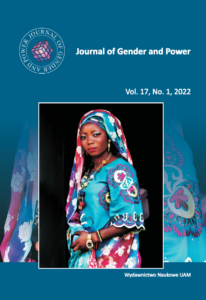Women and Rural Water Management: Unequal Power Relations and Gender Stereotypes, Ondo State, Nigeria
Women and Rural Water Management: Unequal Power Relations and Gender Stereotypes, Ondo State, Nigeria
Author(s): Paul Awoniyi, Friday EboiyehiSubject(s): Gender Studies
Published by: Uniwersytet Adama Mickiewicza
Keywords: gender stereotypes; gender equality; women; water; rural water management
Summary/Abstract: Inadequate access to potable water continues to be a serious problem in villages in Nigeria. Due to cultural and religious perceptions with regard to gender roles in rural water management, the marginalisation of women from rural water management (RWM) has continued to hamper rural development, reinforcing subjective perceptions of the social construction of gender roles in water management. This study proceeded using a purposive sampling technique with 30 In-depth interviews and Focus Group Discussions comprising of eight males and eight females in each of the three study sites. The study draws from a gender-based participatory paradigm that conceptualised gender roles and women’s participation as representing partnership and ownership. Findings from this study revealed that rural women are solely responsible for the sustenance of their family’s potable water provision. Further findings show that perceptions about gender roles in RWM and the time women spend in water provision make their inclusion in RWM impossible. Therefore, the gender power differential which re-emphasises the culturally perceived role of women in water management could be partly responsible for prolonging water challenges faced by rural communities.
Journal: Journal of Gender and Power
- Issue Year: 17/2022
- Issue No: 1
- Page Range: 9-29
- Page Count: 21
- Language: English

